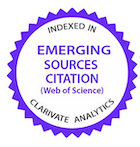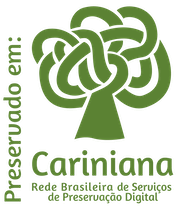Avaliação das dietas simplificadas e semi-simplificadas, com base na mistura de forrageiras, com e sem enzimas, para coelhos em crescimento
DOI:
https://doi.org/10.5216/cab.v13i3.17565Palavras-chave:
cunicultura, desempenho produtivo, rama da mandiocaResumo
As dietas simplificadas e semi-simplificadas para coelhos são uma nova tecnologia que associa economia e bem estar intestinal. O objetivo principal deste trabalho foi avaliar o efeito das dietas simplificadas e semi-simplificadas, com e sem enzimas exógenas, sobre o desempenho produtivo de coelhos em crescimento. Foram utilizadas 11 dietas, sendo uma referência, duas simplificadas e oito semi-simplificadas, formuladas, contendo como principais fontes fibrosas o feno de alfafa (FAL), feno do terço superior da rama da mandioca (FTSRM) e ou a farinha das folhas de mandioca (FFM), com ou sem adição de enzimas exógenas Os animais foram distribuídos em um delineamento inteiramente cazualizado com 11 tratamentos e oito repetições. As enzimas utilizadas foram as carboidrases (alfa-galactosidase, galactomanase, xilanase e betaglucanase) e a fitase. O consumo dos animais que receberam as dietas com elevada inclusão de FFM foi inferior ao demais. O ganho de peso diário mais elevado foi observado com os animais alimentados com as dietas referência, semi-simplificada com base em FTSRM e semi-simplificada com base na mistura de FAL e FFM. Não foram observados efeitos positivos das enzimas exógenas sobre os parâmetros de desempenho. Com base nestes resultados conclui-se que as dietas simplificadas e semi-simplificadas proporcionam queda no desempenho produtivo. Considerando-se a economia proporcionada no custo da alimentação, a dieta semi-simplificada com base em FTSRM pode ser uma alternativa interessante.
PALAVRAS-CHAVE: cunicultura, desempenho produtivo, rama da mandioca.
Downloads
Publicado
Como Citar
Edição
Seção
Licença
Copyright (c) 2012 Ciência Animal Brasileira / Brazilian Animal Science

Este trabalho está licenciado sob uma licença Creative Commons Attribution 4.0 International License.
Autores que publicam nesta revista concordam com os seguintes termos:
- Autores mantém os direitos autorais e concedem à revista o direito de primeira publicação, com o trabalho simultaneamente licenciado sob a Licença Creative Commons Attribution que permite o compartilhamento do trabalho com reconhecimento da autoria e publicação inicial nesta revista.
- Autores têm autorização para assumir contratos adicionais separadamente, para distribuição não-exclusiva da versão do trabalho publicada nesta revista (ex.: publicar em repositório institucional ou como capítulo de livro), com reconhecimento de autoria e publicação inicial nesta revista.
- Autores têm permissão e são estimulados a publicar e distribuir seu trabalho online (ex.: em repositórios institucionais ou na sua página pessoal) a qualquer ponto antes ou durante o processo editorial, já que isso pode gerar alterações produtivas, bem como aumentar o impacto e a citação do trabalho publicado (Veja O Efeito do Acesso Livre).






























